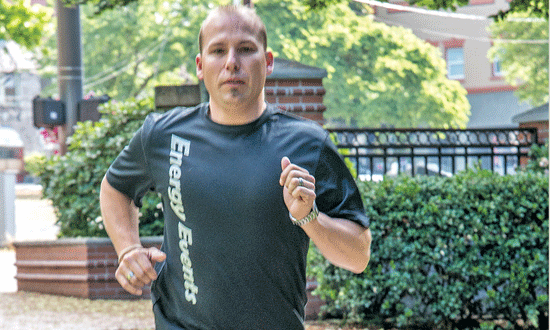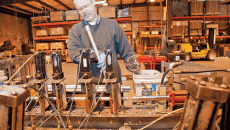
Vancouver-based WRK Engineers was barely a year old when the Japanese earthquake made headlines. Despite its youth, the structural and seismic engineering firm was approached by the Tennessee Valley Authority (TVA) for a seismic vulnerability assessment of nuclear power plants in Tennessee and Alabama.
Principal and founder Brian Knight said the firm’s specialty is strengthening essential facilities, such as hospitals and power stations, so they can remain operational after a major seismic event. Recent world events have many, including the TVA, seeing the importance of this service.
“[The earthquake in Japan] has created an awareness for a lot of the clients that we have,” Knight said.
WRK operates out of a single floor in a Main Street office building, but their work has taken them far beyond Vancouver. In fact, WRK marketing coordinator Jasmine Brenneman estimated that only 15 to 20 percent of the firm’s 250 projects have been in Southwest Washington. Besides extensive work for the Bonneville Power Administration and the TVA, WRK’s portfolio has grown to include commercial, educational, healthcare and housing environments around the western United States.
That growth came a lot faster than expected, the founder said. Knight started the company in 2010 after breaking off from a larger engineering firm, knowing that he could still reach clients from his hometown. In the two years since then, his team has expanded to 10 employees.
 “We’re very busy,” he explained. “Just when I think our staff is about even with the work, the work goes up. Even now, we’re struggling – we just added two more employees but we’re still understaffed.”
“We’re very busy,” he explained. “Just when I think our staff is about even with the work, the work goes up. Even now, we’re struggling – we just added two more employees but we’re still understaffed.”
Knight attributed the company’s success to its unique approach to engineering and solution-oriented customer service.
“We try to bring our clients solutions rather than problems,” he said. “And we try to help them solve their problems regardless of what they are. For example, we have clients that we’ll do seismic strengthening of buildings for, but if they ask us to anchor a bookshelf to a wall, we’ll do that as well. If it’s important to them, it’s important to us. It doesn’t matter how sexy the project is.”
He also said his firm works very hard to take ownership of client problems.
“You have to provide them something that has their best interest at heart, almost like you’re one of their employees,” Knight remarked. “We do a lot of work for Bonneville Power. When we do those projects, we put on the Bonneville Power hat like we’re a Bonneville employee and ask, ‘what’s best for Bonneville?’”
As WRK continues to grow, Knight plans on moving the firm to a larger office in downtown Vancouver this fall and increasing marketing efforts. Growth, however, is not his main focus.
“So many firms I’ve worked for in the past were driven by headcount,” he recalled. “Our goals are more driven by building strong relationships with our clients. Our growth will be a by-product of how well we do that. If we stayed at 10 people forever, I’d be fine with that. Bigger doesn’t mean better and it doesn’t mean more profitable.”


